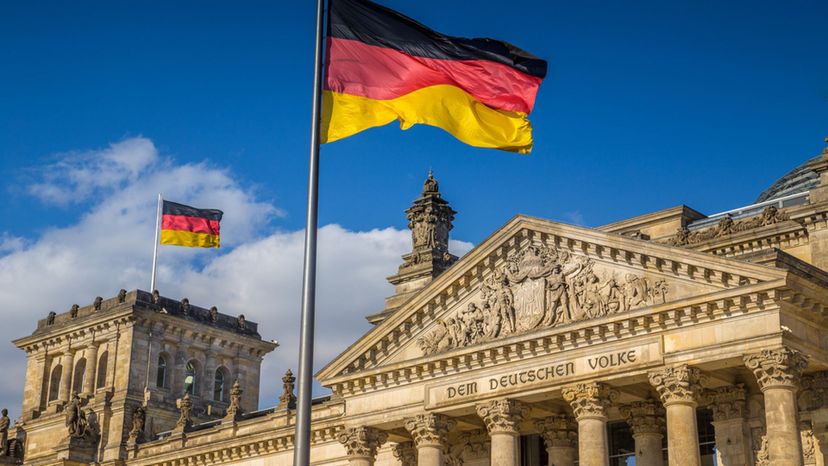
Image: Shutterstock
About This Quiz
German, or "Deutsch," is the second most widely used Germanic language after English with over 100 million speakers. The greatest concentration of speakers live in Central Europe, including Germany, Austria, Switzerland, Liechtenstein, Luxembourg, Belgium, and a small part of Italy. Interestingly, though, most people don't know even the most basic German. Do you?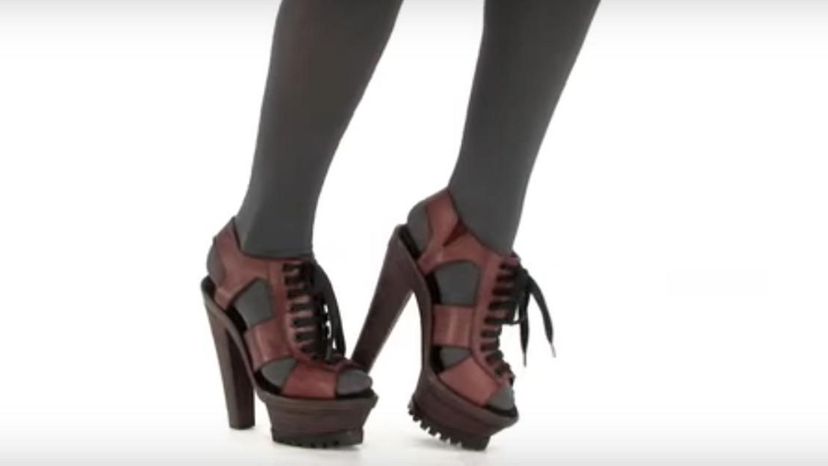
YouTube
What's this in German?
Schuh
Schuh, or "shoe" in English, is pronounced similarly to the way English speakers pronounce their version of the word. Schuh is now a popular footwear retailer started in Scotland with a total of 118 stores in the UK, Ireland, the British Isles and Germany.
Rot
Kandis
Zuckerl
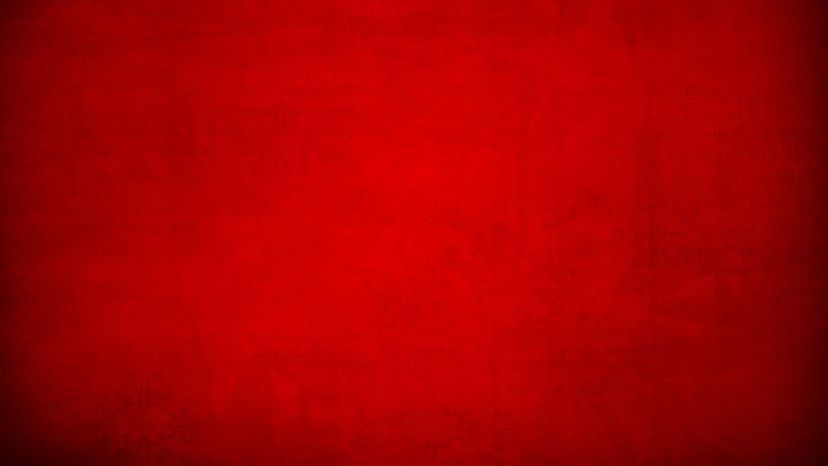
Shutterstock
What's this in German?
Kandiszucker
Rot
"Rot," or "red" in English, is the most commonly used German word to describe the color red, although "fuchsrot" is also used at times. However, it more describes a "foxy red" or "ginger."
Gutsel
Kandieren
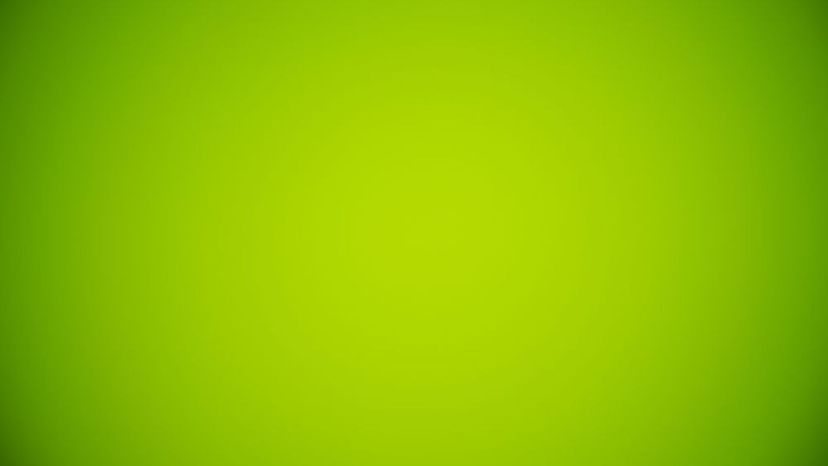
Shutterstock
What's this in German?
Leben
Nutzungsdauer
Grün
Grün is the German word for the color green. Here it is used in a sentence: "gras, Frösche und Kiwis sind grün," which means "grass, frogs and kiwis are green."
Biografie
Advertisement
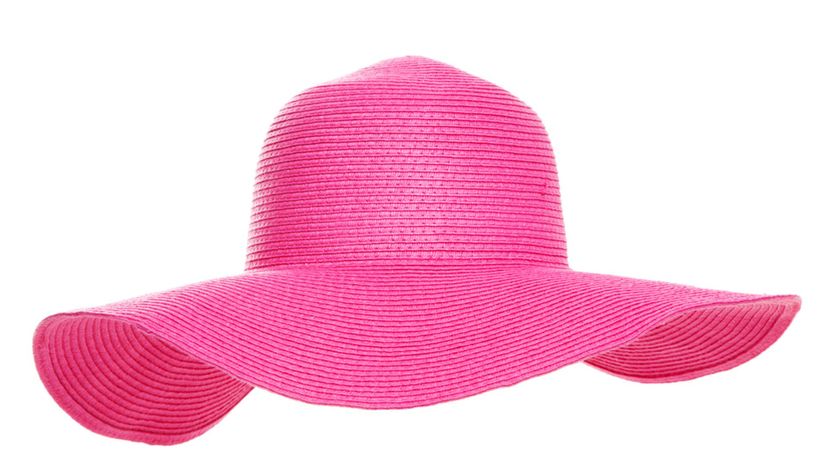
Shutterstock
What's this in German?
Umarmen
Hut
Hut is the German word for hat in English. If used in a sentence, such as "I placed my hat on the table," the translation would be "Ich legte meinen Hut auf den Tisch."
Knuddeln
Herzen

Shutterstock
What's this in German?
Geschnatter
Hand
Hand in German is spelled the same way as it is in English, and it's pronounced almost the same way as well. If used in a sentence like "I write with my left hand," it's "Ich schreibe mit der linken Hand."
Kontaktprellen
Box
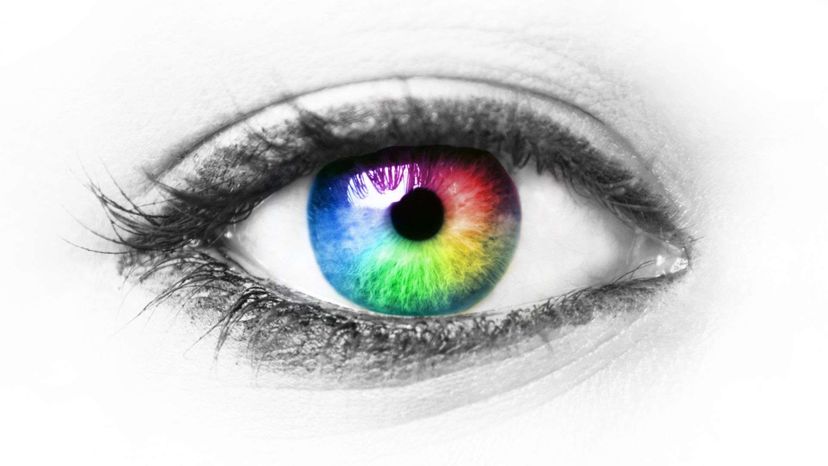
Shutterstock
What's this in German?
Schnell
Rasch
Auge
Auge is the German word for eye. In a sentence, "I have two eyes," would be translated to "Ich habe zwei Augen." If eye is used as a verb, such as "she eyed that dress," the German word turns into "betrachten" and the translation goes, "Die Frau betrachtete das Kleid."
Fix
Advertisement

Shutterstock
What's this in German?
Blau
Blau is the German word for blue. If used as a noun such as "the color blue is supposed to be relaxing," in German the translation is "Die Farbe Blau soll entspannend sein." However, sometimes when "blue" is used an adjective such as "when I was feeling blue," the German word changes to traurig and the phrase would be, "Als ich traurig war."
Hund
Rüde
Mitnehmer
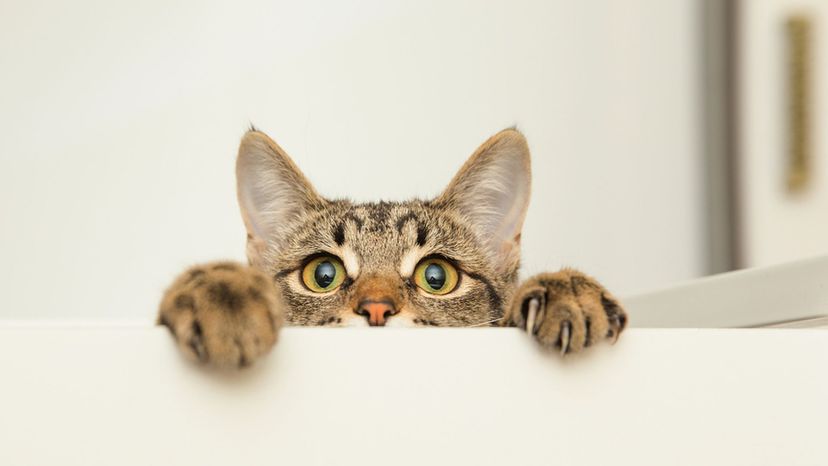
Shutterstock
What's this in German?
Tier
Animalisch
Katze
Katze is the German word for cat. Used in a sentence, "we've always had a cat as a pet," for example, translates into "wir hatten immer eine Katze als Haustier." Cat as in the saying "to let the cat out of the bag" is still the same word, "katze" in German, hence, "die Katze aus dem Sack lassen."
Aufgedrucktes
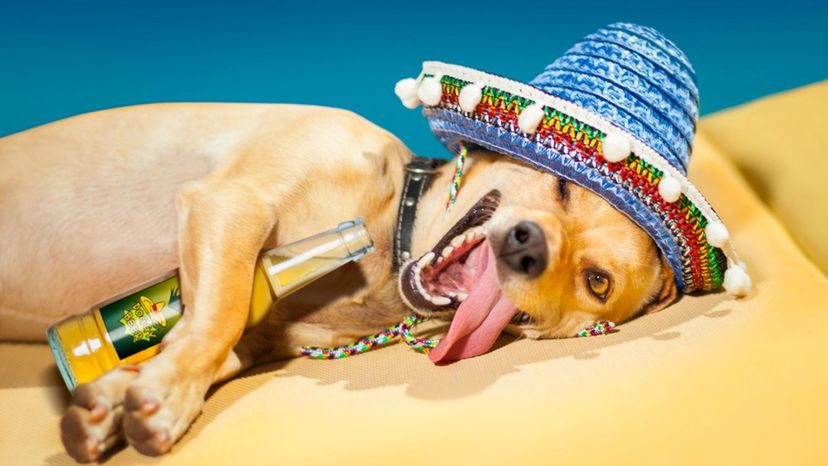
Shutterstock
What's this in German?
Hund
Hund is the German word for dog. (Other less common terms for dog include rüde, haushund, mitnehmer, and knagge.) Used in a sentence, such as "this little dog," translates into "Dieser kleine Hund ist niedlich" in German.
Rose
Brause
Rosengewächs
Advertisement
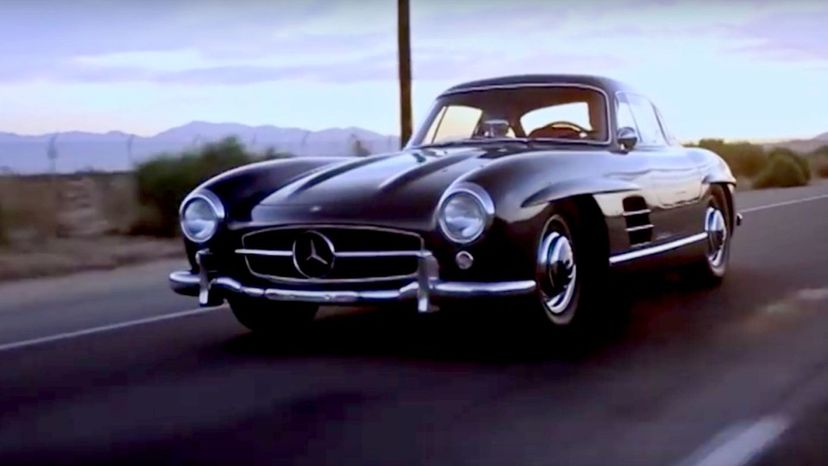
YouTube
What's this in German?
Auto
Auto is the German word for car as in an automobile. (Meanwhile, wagen is used to describe a train car, and fahrkorb is used to describe an elevator car.) Auto used in a sentence such as "my car has new tires" is "mein auto hat neue reifen."
Gehirn
Verstand
Grips
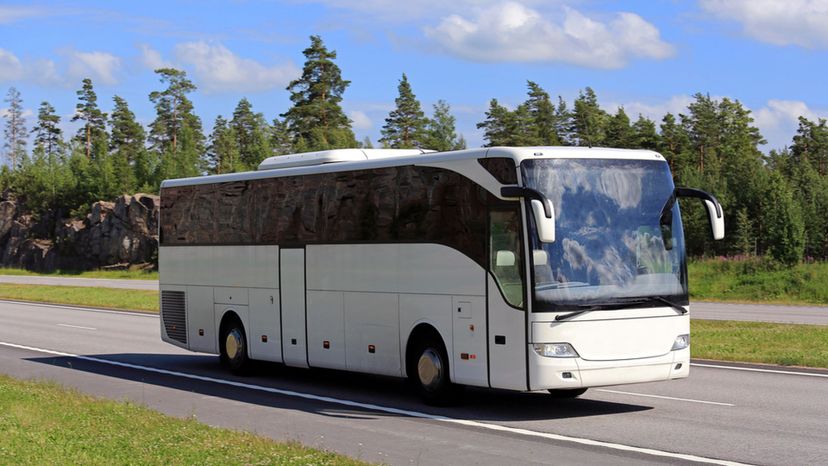
Shutterstock
What's this in German?
Bus
Bus means the same thing in English and German, and it's pronounced similarly in both languages. Occasionally, German speakers also use the word omnibus when referring to a school bus.
Track
Spur
Bahn
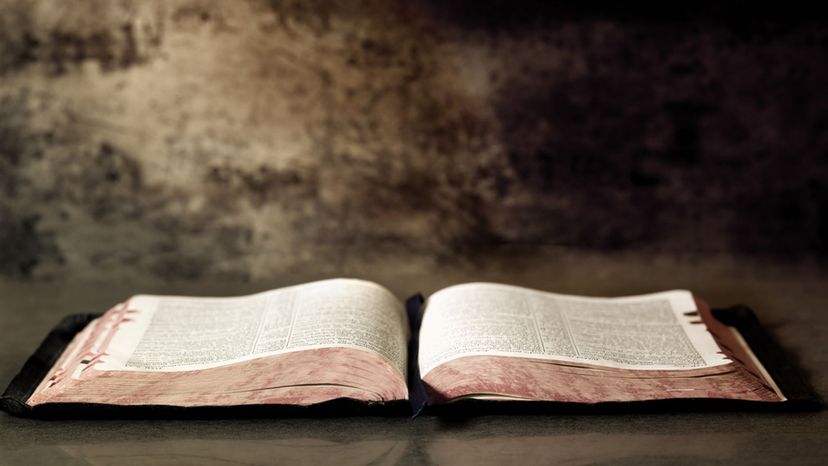
Shutterstock
What's this in German?
Enorm
Groß
Riesig
Buch
Buch is the German word for book. (Heft means book, too, but it more applies to a small book, booklet or issue.) Used in a sentence such as "this is my book" is "das ist mein buch" in German.
Advertisement
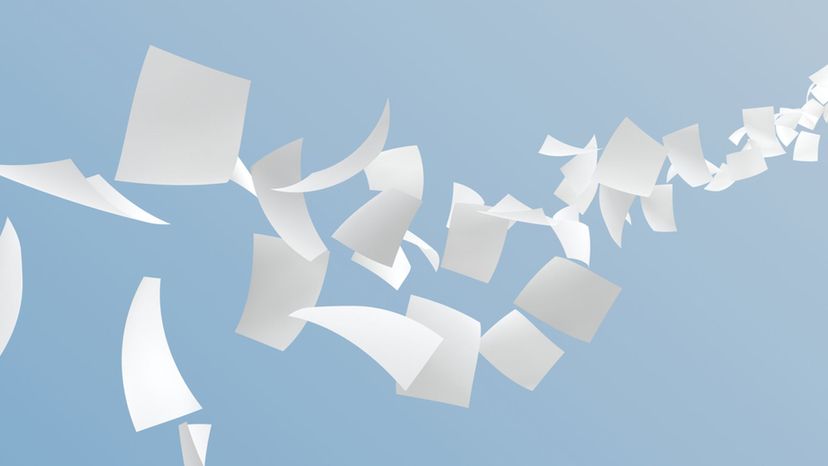
Shutterstock
What's this in German?
Weglaufen
Papier
Papier is the German word for paper as in "I cut the paper into strips." However, arbeit is used to describe school-type papers; zeitung is used for newspapers; and abhandlung is used for academic or critical papers.
Ausreißen
Durchbrennen
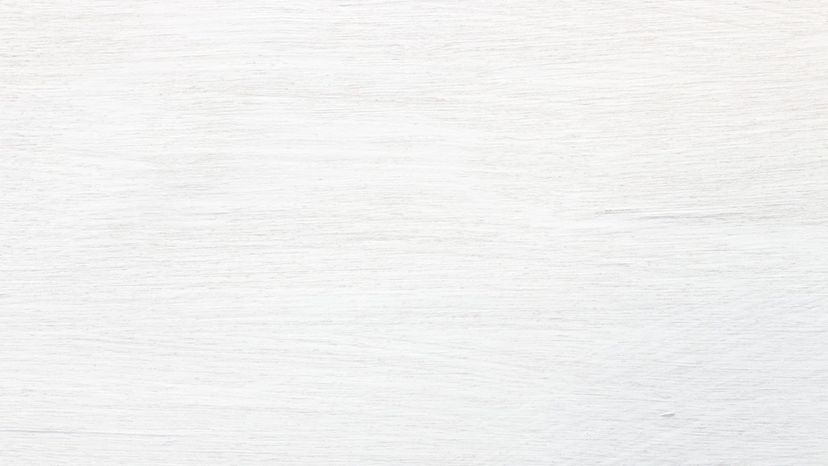
Shutterstock
What's this in German?
Straße
Gasse
Straßenzug
Weiß
Weiß is the German word for the color white. In a sentence such as "white suits you well," in German it's "weiß steht dir wirklich gut." However, to say eggwhite, it's eiweiß.
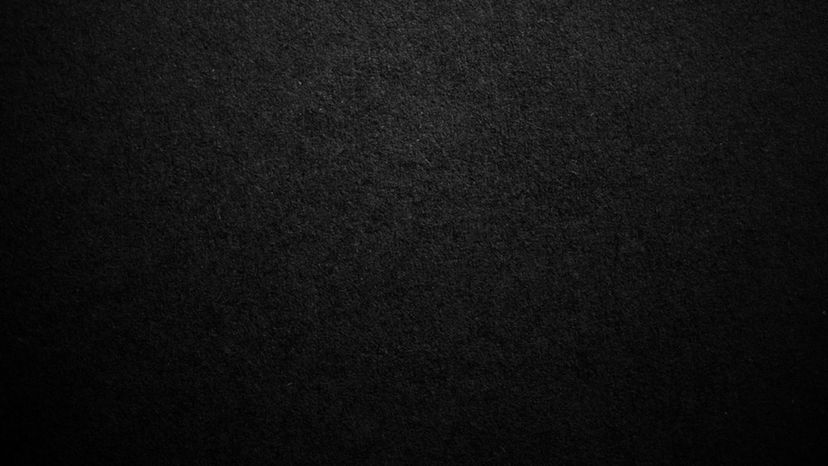
Shutterstock
What's this in German?
Beanspruchung
Betonung
Schwarz
Schwarz is the German word for the color black (while the verb blacked is schwärzen). "Black and white photography," for example, is "schwarz-weiß-fotografie." However, to say someone looks black and blue, the saying is "grün und blau."
Druck
Advertisement
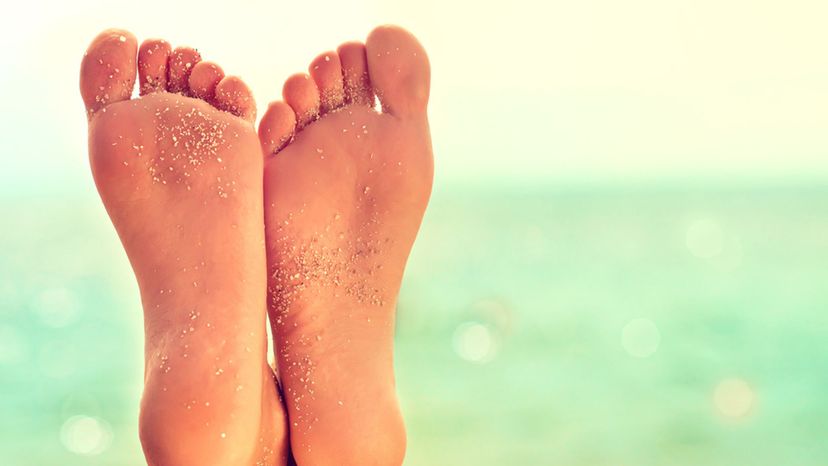
Shutterstock
What's this in German?
Angebot
Fuß
Fuß is the German word for foot, while füße is the word for feet. The word is used the same way as in English, except when it comes to certain sayings. For example, "my foot hurts" is straightforward as "mein Fuß tut weh" in German, but to say "to be on one's feet," in either a literal or figurative sense, is "auf den Beinen sein."
Unter anderem
Einsatz

Shutterstock
What is she wearing in German?
Verpflichtung
Shirt
Shirt means the same thing in both German and English, and it's pronounced almost the same in both languages. "Weißes Shirt" and "schönes Shirt" mean white shirt and nice shirt, respectively. The word t-shirt is also used the same way in English and German.
Engagement
Hingabe

Shutterstock
What is she wearing in German?
Bekenntnis
Jacke
Jacke is the German word for jacket. In a sentence such as "I like your jacket," it's "Ich mag deine Jacke" in German. Meanwhile, a men's tailored suit jacket is jackett; and a book jacket is schutzumschlag.
Zusage
Bindung
Advertisement
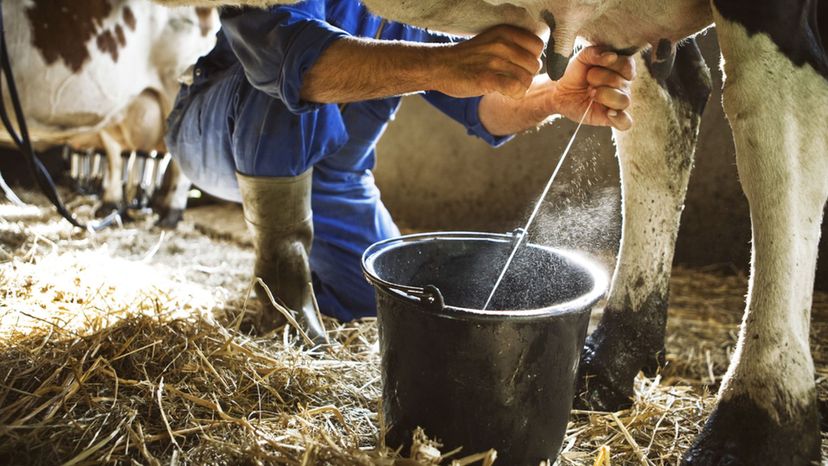
Shutterstock
What's this in German?
Verüben
Begehen
Milch
Milch means milk in German, and milche and milchen are the plural forms of the word. To use the word as a verb, however, like "the farmer milked the cow," the German form becomes melken.
Festlegung
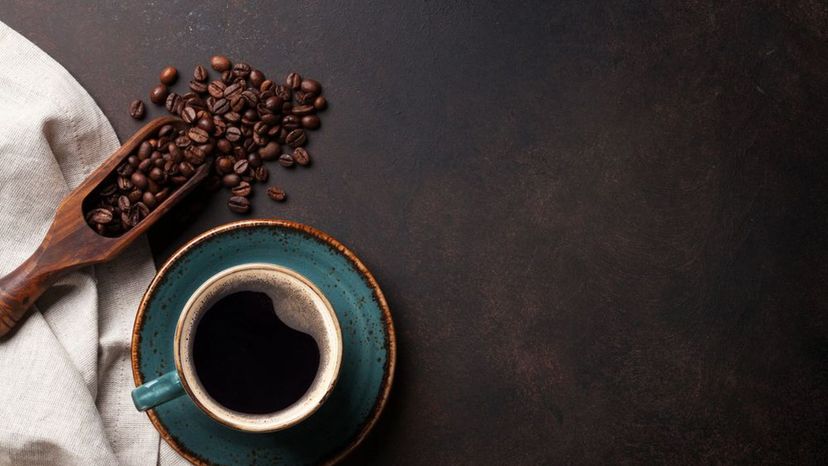
Shutterstock
What's this in German?
Kaffee
Kaffee is the German word for coffee, and while the words are definitely spelled differently, the English and German pronunciation of the caffeinated beverage is surprisingly similar. "Two coffees, please," is "zwei Kaffee, bitte" in German. The German word for coffee shop is coffeeshop.
Butter
Chocolate
Hut
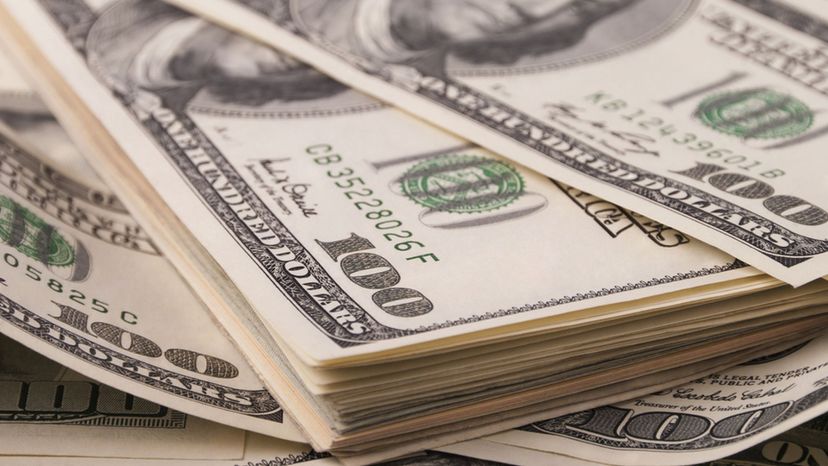
Shutterstock
What's this in German?
Banana
Geld
Geld is the German word for money. For example, "I got all my money back" is "Ich habe mein gesamtes Geld zurückerhalten" in German. However, German speakers sometimes substitute geld for other words when they're not referring to straightforward cash. For instance, to say "there's money in it" is "das ist sehr lukrativ" in German; "what's the money like in this job" is "wie wird der Job bezahlt?" and "to earn good money" is "gut verdienen."
Cream
Horse
Advertisement
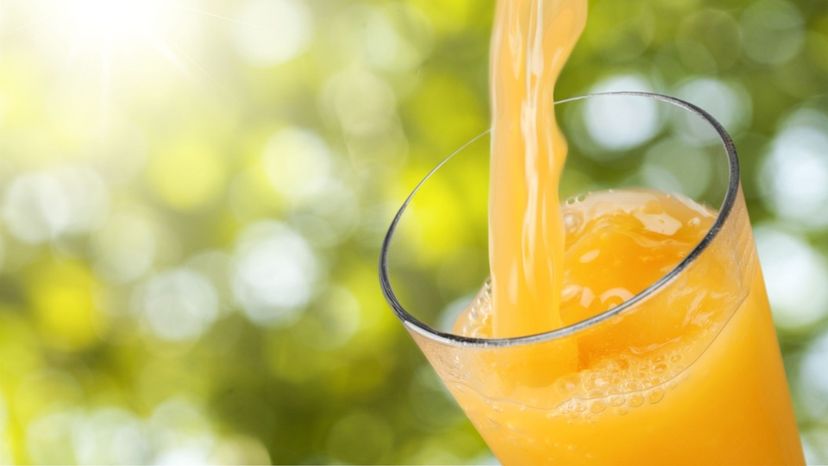
Shutterstock
What's this in German?
Salt
Orange
Citrus
Saft
Saft is the German word for juice. In a sentence, like "I'm making fresh juice," it's "Ich mache frischen Saft." When referring to a specific type of juice, German combines the type of fruit/vegetable and the word for juice into one word such as zitrussaft (lemon juice) and cranberrysaft (cranberry juice.)
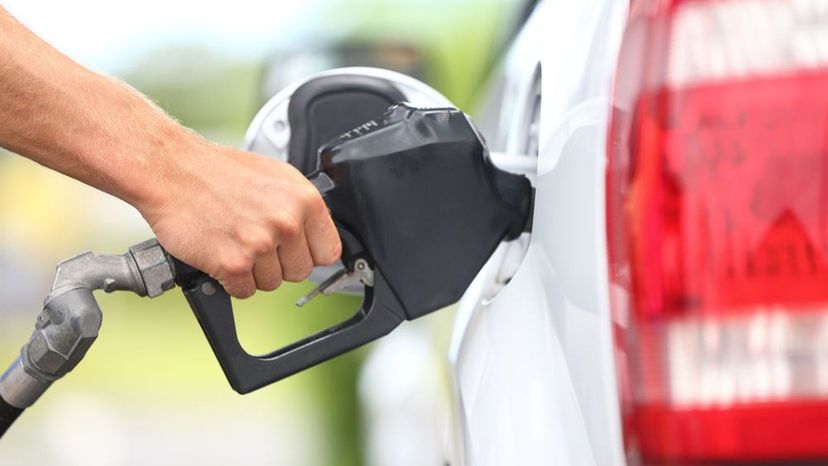
Shutterstock
What's this in German?
Benzin
Benzin is the German word for gasoline. For example, "I need more gasoline" is "Ich brauche mehr Benzin" in German. However, the most common way to refer to gasoline in both English and German is actually "gas," and it's pronounced almost the same way, too.
Wohne
Morgen
Garten
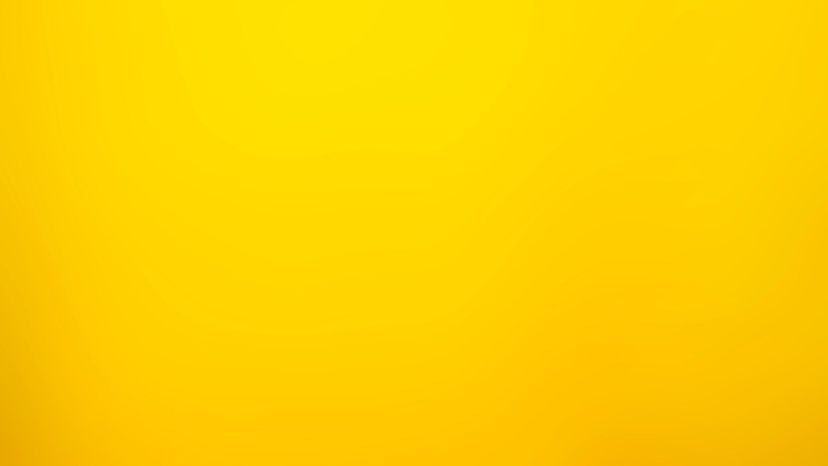
Shutterstock
What's this in German?
Gelb
Gelb is the German word for yellow. For example, to say, "she wears the color yellow all the time," it's "Sie trägt die Farbe gelb die ganze Zeit." However, when applied as a verb like "this piece of paper has yellowed," the word takes on a different form such as "gelb werden," "vergilben," or "gilben."
Ich
Wohne
Jeden
Advertisement
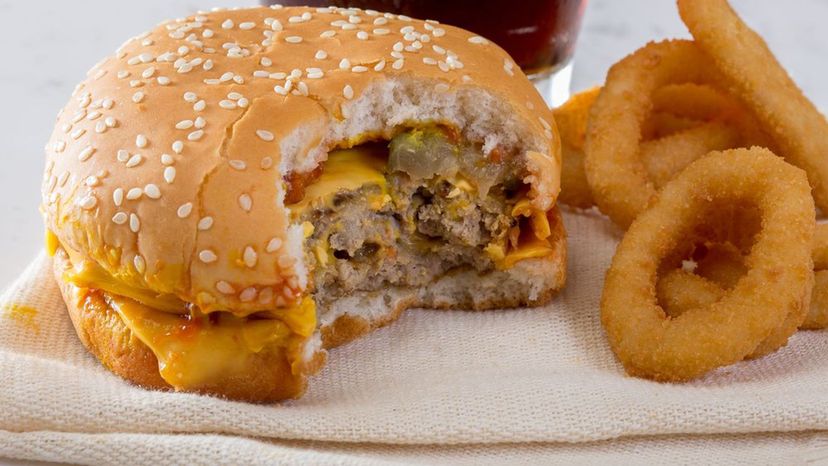
Shutterstock
What's this in German?
Lollipop
Hamburger
Hamburger, as in the iconic American pleasure sandwich with a ground beef patty on a bun or roll, is the same word in English and German. The word derives from Hamburg, Germany's second-largest city, and is similar to other famous meat foods, like frankfurter and wiener, in that they are named after cities in which they originated, like Frankfurt and Vienna (Wien), respectively. That being said, many Americans argue the hamburger came to be in the States in the early 1900s and gained widespread notoriety at the 1904 St. Louis World's Fair.
Bonbon
Den
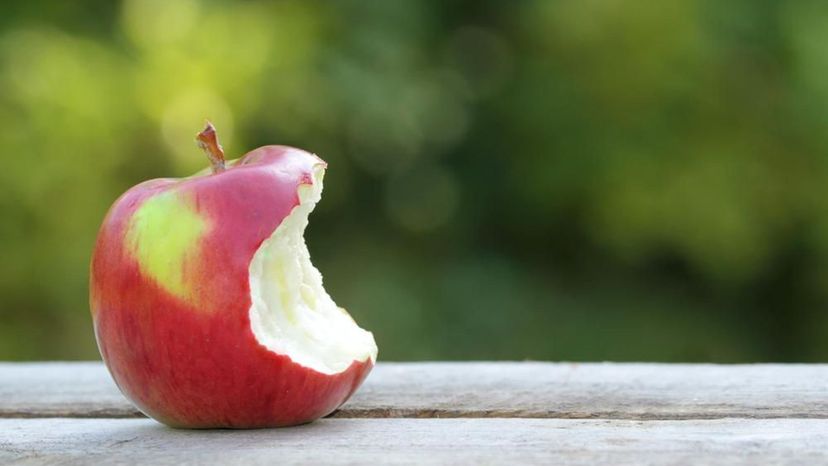
n/a
What's this in German?
Bieten
Apfel
Apfel is the German word for apple and used in many variations to describe apple-related items. For example, apple cider vinegar is apfelweinessig; apple tree is apfelbaum; and apple pure is apfelpüree. To explain that someone is "the apple of one's eye," however, the words augenstern or augapfel are used instead.
Stellen
Versorgen
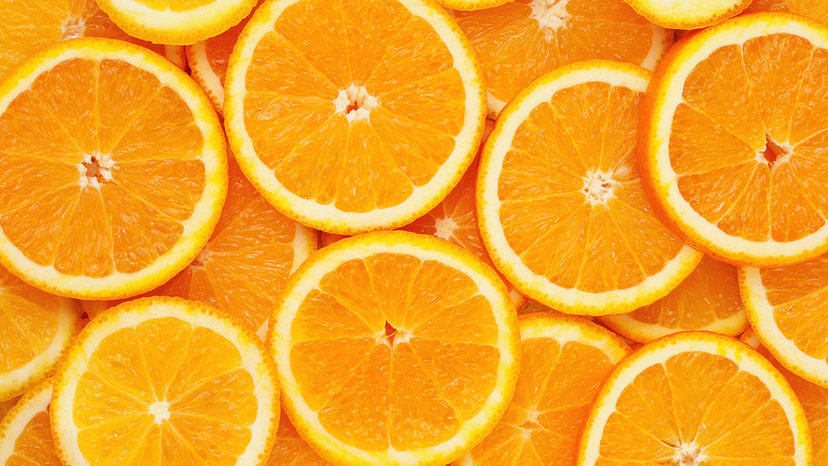
n/a
What's this in German?
Gleichzeitig
Saft
Orange
Orange, the fruit, is the same word in English and German, however, they're pronounced quite differently in the two languages. (It's actually originally from French.) In German, like in English, orange describes the fruit and the color. For example, orange juice is orangensaft.
Hut
Advertisement
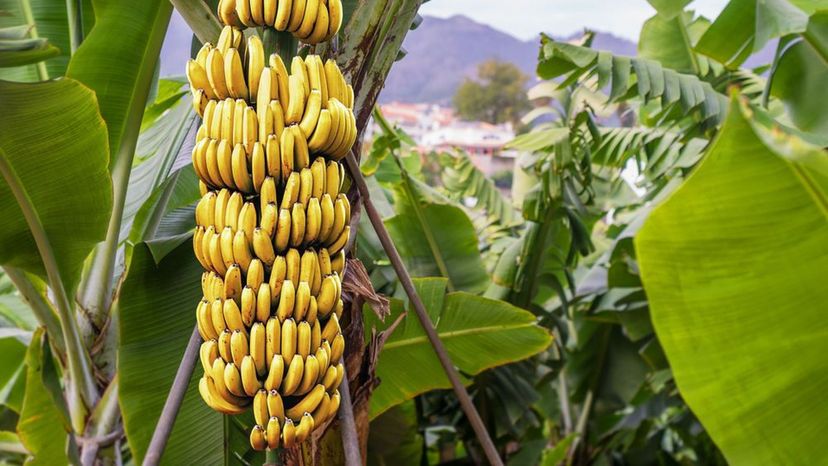
Shutterstock / pp1
What's this in German?
Banane
Banane is the German word for the fruit, banana, and although spelled slightly differently, the German and English versions of the word are pronounced similarly. In a sentence, "monkeys loves bananas" translates to "Affen lieben Bananen" in German. A Banana split is bananensplit or bananendampfer; and banana boat is bananenboot.
Rot
Orange
Green
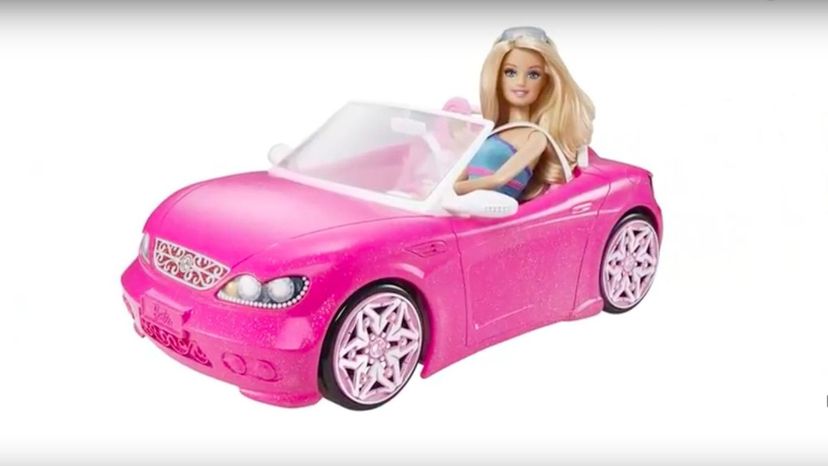
YouTube
What's this in German?
Messestand
Spielzeug
Spielzeug is the German word for toy, as in "Alle Kinder spielen gern mit Spielzeug," which means "all children like playing with toys." To use the word as a verb, however, such as "he toyed with my feelings," it's "Er spielte mit meinen Gefühlen."
Tribüne
Untersatz

Shutterstock
What's this in German?
Jackett
Hund
Ball
Ball, as in "my dog loves to chase a ball," is the same word in German as in English although the "a" is pronounced slightly differently. In German, however, other words that involve balls, such as a ball of wool is "knäuel," curl up in a ball is "sich zusammengerollt," and a billiards or croquet ball is "kugel."
Rot
Advertisement
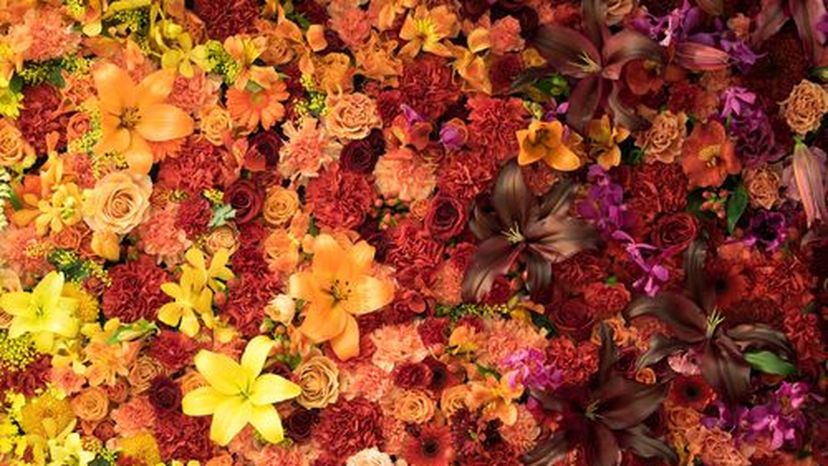
Shutterstock
What's this in German?
Blume
Blume (blumen for plural) is the German word for flower. For instance, German for "a vase holds flowers" is "eine Vase hält Blumen." Interestingly, "blüte" also means flower, but it's more aligned with how English speakers might use blossom (although most often we still use the word flower.) For example, "a broom is a shrub with yellow flowers" would be "Ginster ist ein Strauch mit gelben Blüten," and a case where "blüten" would be used instead of "blume."
Ball
Insbesondere
Besonders

Shutterstock
What's this in German?
Baum
Baum (bäume for plural) is the German word for tree. It's used in the same way as the English word, except in certain cases. For example, "baum" is used for cherry tree (ein Kirschbaum), pear tree (birnenbaum), thorn tree (dornenbaum), and host tree (wirtsbaum),%0Dbut for oak tree it's "eine Eiche."
Tuxedo
Hauptsächlich
Extra
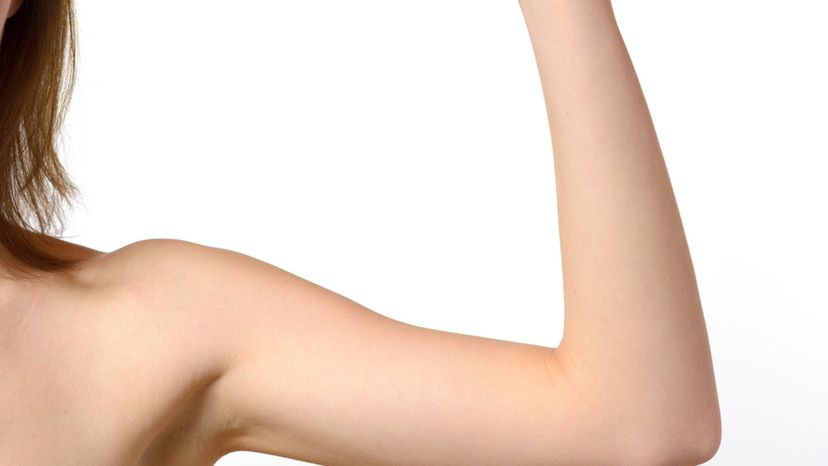
Shutterstock
What's this in German?
Arm
Arm is the same word in German as in English when describing the body part, although the "a" in the word is pronounced differently. To say "I have a tattoo on my arm" is "Ich habe ein Tattoo auf meinem Arm." When referring to arms as in weapons, however, the German word is "waffe" (or "waffen" for plural).
Hand
Cranberry
Seltzer
Advertisement
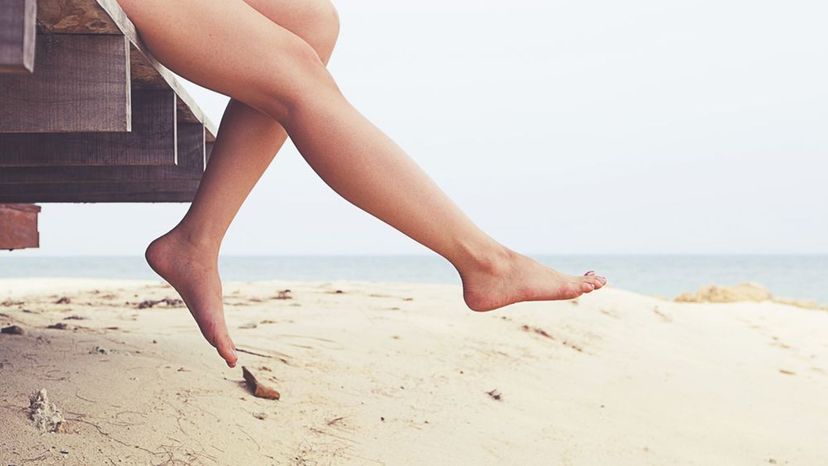
Shutterstock
What's this in German?
Bein
Bein is the German word for leg as in "she has nice legs," or in German, "Sie hat schöne Beine." However, leg in sports as in "he won the first leg of the race" is etappe; and leg as in a part of something, like "the second leg of our trip was the longest" is abschnitt. With figures of speech such as "that story [plan] [idea] has legs," the German word is laufen or klappen.
Start
Kurte
Zevwe
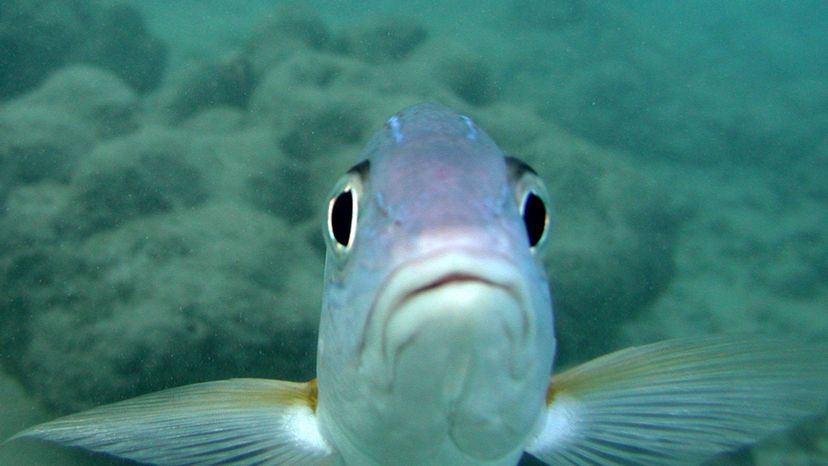
Shutterstock
What's this in German?
Danke
Fisch
Fisch, fische for plural, is the German word for fish. For example, "he prefers fish to meat" translates to "Er isst lieber Fisch als Fleisch." Some sayings, such as "like a fish out of water," retain the word fische (wie ein Fisch auf dem Trockenen). However, others don't, such as "to drink like a fish" is "wie ein Loch saufen;" and "there are plenty more fish in the sea" translates to "es gibt noch mehr (davon) auf der Welt."
Oui
Zitrus
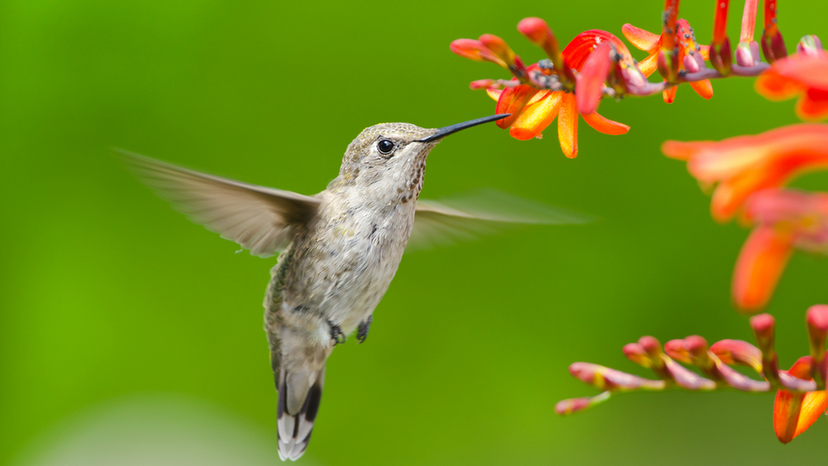
Shutterstock
What's this in German?
Channel
Vogel
Vogel is the German word for bird such as "I gently picked up the little bird" or "Ich hob den kleinen Vogel behutsam auf." Less common German words for bird include puppe, mieze, braut, and tussi. With figures of speech that involve birds in English, "vogel" is mostly not used. For example, "a little bird told me" is "das sagt mir mein kleiner Finger," or "a bird in the hand is worth two in the bush" translates to "der Spatz in der Hand ist besser als die Taube auf dem Dach."
Vertz
Canal
Advertisement

Shutterstock
What's this in German?
Poppins
Flugzeug
Flugzeug (flugzeuge for plural) is the German word for airplane as in "airplanes take you to faraway destinations," or in German "flugzeuge bringen Sie zu weit entfernten Zielen." Examples of other words that use the base word of airplane include airplane ticket or "flugkarte," airplane hangar or "flugzeughangar," and airplane wing or "flugzeugflügel."
Clack
Chocolate

Shutterstock
What's this in German?
Boot
Boot is the German word for boat. Other words for boat are schiff (ship, vessel or passenger boat), kahn (boat or barge), dampfer (steamer, steamship or boat), barke (boat or barque), schiffchen (boat or shuttle), and fährschiff (ferry, ferry boat or boat). Sayings such as "to miss the boat" and "we're all in the same boat" in German are "den Anschluss verpassen" and "im gleichen Boot."
Bottom
Elastic
Katzefuder
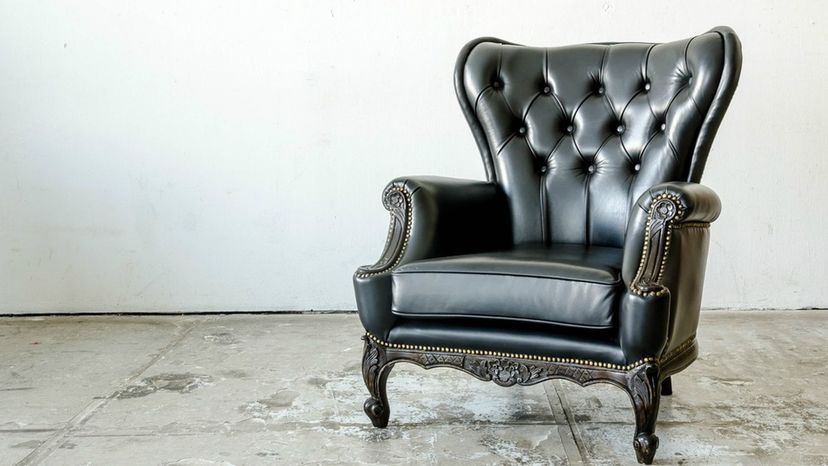
Shutterstock
What's this in German?
Rtune
Zclab
Futz
Stuhl
Stuhl is the German word for chair as in "the man sat down on the chair," or, in German, "Der Mann setzte sich auf den Stuhl." Meanwhile, "lehrstuhl" is used to describe a professorship chair; "vorsitz" is used for a committee or board chair; and "vorsitzender" is used to refer to the chair of an association.
Advertisement
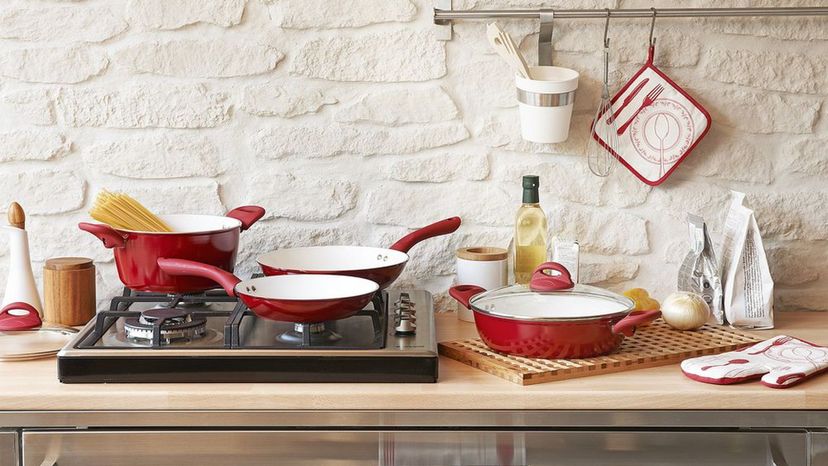
Shutterstock
What's this in German?
Küche
Küche is the German word for kitchen. In a sentence, it would be "ihr Haus hat eine große Küche," or, in English, "she has a big kitchen." Ways in which the base word küche is used include küchentresen (kitchen counter), küchenspülbecken (kitchen sink), versuchsküche (test kitchen), and designer kitchen (designerküche).
Valid
Kildern
Pvepe
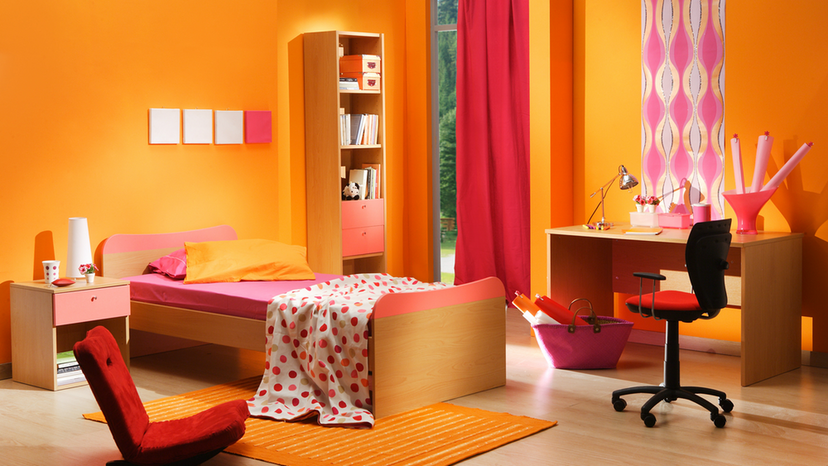
Shutterstock
What's this in German?
Fabulous
Hederflen
Hertz
Schlafzimmer
Schlafzimmer is the German word for bedroom. In a sentence, it would be "mein Haus hat acht Schlafzimmer," or, in English, "my house has eight bedrooms." Other less common words for bedroom include schlafraum, kammer (chamber or bedroom), and schlafstube.

Shutterstock
What's this in German?
Mitten
Mein
Badezimmer
Badezimmer, or more commonly "bad" for short, is the German word for bathroom. Other less commonly used terms include toilette (lavatory), WC (as in "water closet" in English), and klosett (which is also the word for closet).
Freund
Advertisement
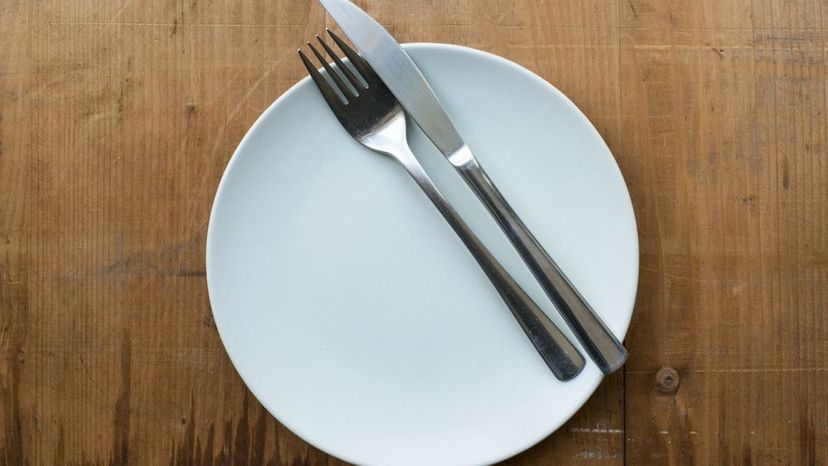
Shutterstock
What's this in German?
Teller
Teller is the German word for plate. In a sentence, it would be used like "Sie servierte das Essen auf einem schönen Teller" or "she served the meal on a beautiful plate." Plate as in "the hull of the ship is protected by metal plates" is "platte," which is more similar to the English spelling and pronunciation.
Nachmittag
Herüber
Freund
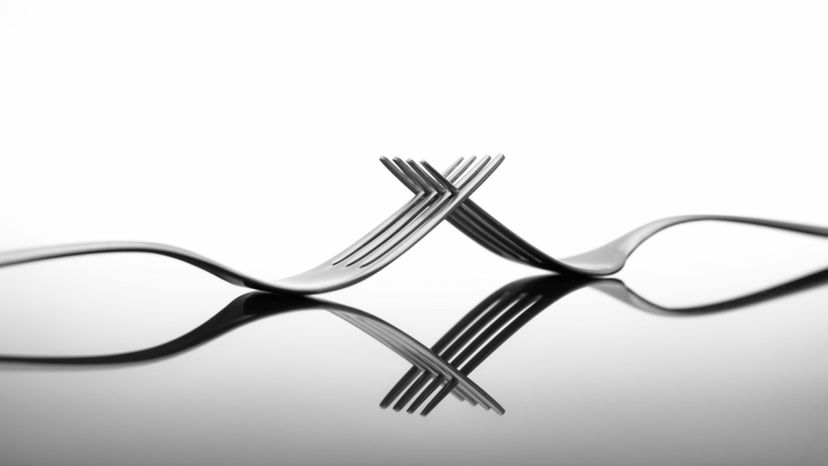
n/a
What's this in German?
Am
Gabel
Gabel is the German word for fork, as in "we eat with forks and knives" or "wir essen mit gabeln und messer." Meanwhile, a fork in a rail or roadway is gabelung; a fork in a tree is astgabel; and to fork right or left on a road is "sich gabeln" nach rechts abzweigen (to the right) or nach rechts abbiegen (to the left).
Mein
Lass
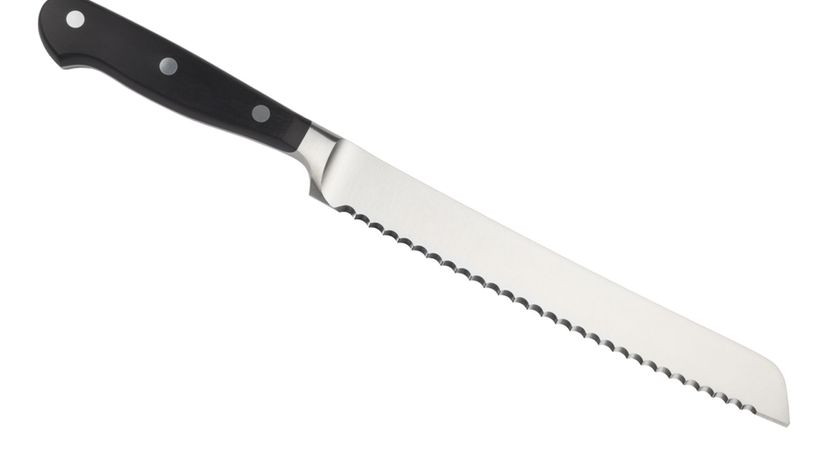
n/a
What's this in German?
Morgen
Messer
Messer is the German word for knife, as in "that knife is really dull" or "das messer ist wirklich stumpf." In figurative speech, "messer" isn't always used. For example,"to turn (or twist) the knife" is "Salz in die Wunde streuen;" "to put (or stick) a knife in it" is "böse zuschlagen;" and "you could have cut the tension with a knife" is "die Stimmung war zum Zerreißen gespannt."
Fischen
Gehen
Advertisement
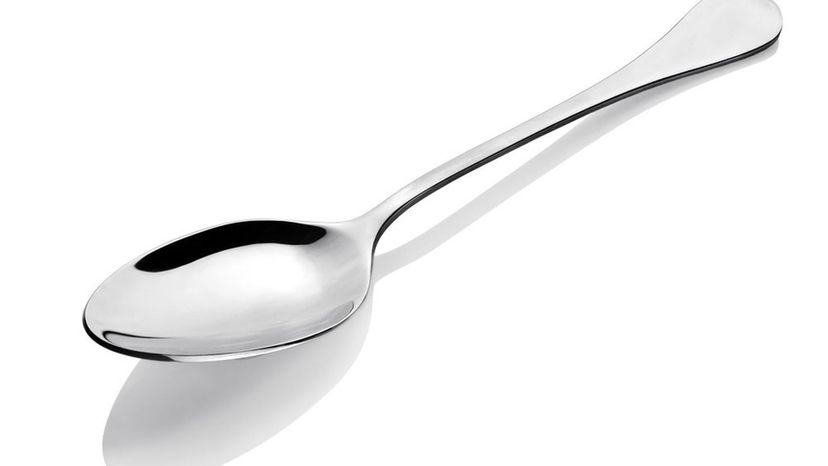
n/a
What's this in German?
Löffel
Löffel is the German word for spoon. In a sentence like "I like to eat soup with a huge spoon," it would be "Ich mag Suppe mit einem riesigen Löffel essen." The word is often the base to describe other things such as dosierlöffel (measuring spoon), esslöffel (soup spoon), kochlöffel (wooden spoon), and metalllöffel (metal spoon).
Taffel
Junke
Trapzi
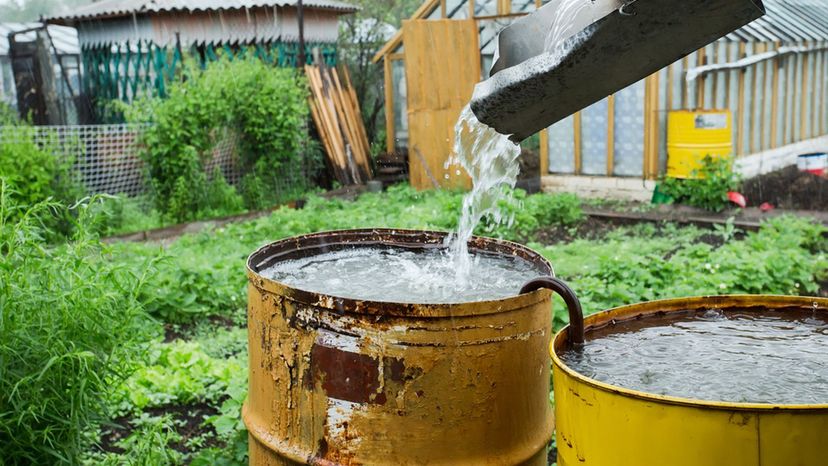
Shutterstock
What's this in German?
Vacation
Liebe
Wasser
Wasser is the word for water in German. When used as a verb, such as "I always water my garden at least once a week" ("Ich wohne jeden Morgen einmal mindestens einmal in den Garten" in German) German speakers instead use either "bewässern" or "gießen." In figures of speech, sometimes "wasser" is used and sometimes it isn't. For example, "to keep one's head above water" is "sich über Wasser halten," but "to get (oneself) into deep water" is "ins Schwimmen kommen."
Mädchen
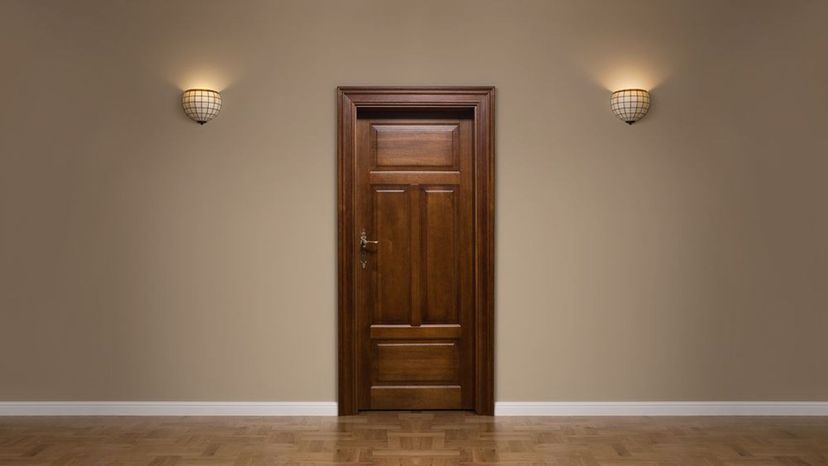
n/a
What's this in German?
Lastima
Tür
Tür is the German word for door as in "there's someone at the door," or, in German, "da ist jemand an der Tür." Other less commonly used words for door are tor (also gate or gateway), klappe (also hutch), eingangstür (also entrance door or entrance), and türflügel. With sayings, sometimes tür is used such as "to show someone the door" which translates in German to "jdm die Tür weisen."
Tocar
Caller
Advertisement
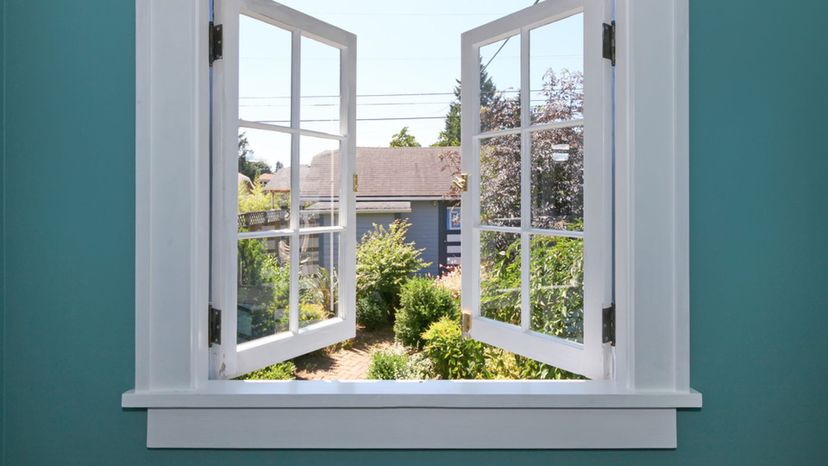
Shutterstock
What's this in German?
Hombre
Fenster
Fenster is the German word for window as in "the window was open" or "das Fenster war offen." However, the window of a shop is "schaufenster," the window on a computer is "bildschirmfenster," and the window in a bank is "schalter."
Chica
Molestarme
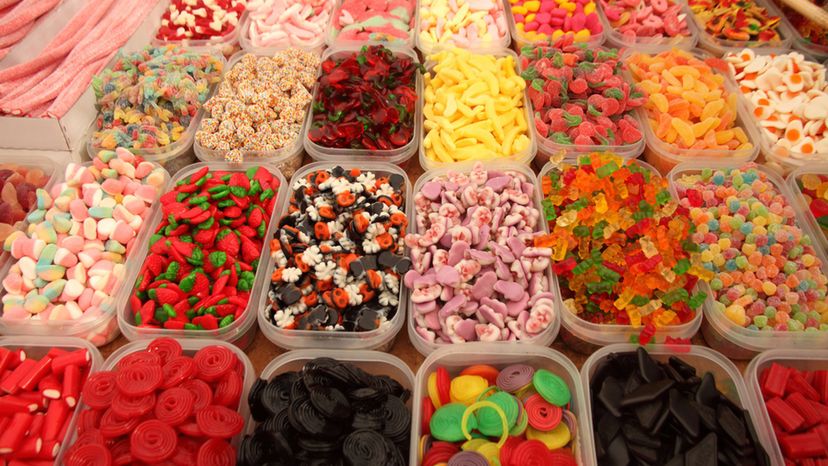
Shutterstock
What's this in German?
Bonbon
Bonbon is the German word for candy. "Süßigkeit" is also used, but it also means "sweetness." When used as a verb, however, which in English is "candied," in German it's "kandieren." So "he candied the lemon peel" is "er kandierte die Zitronenschale."
Candy
Chocolate
Sweet
You Got:
/50
Shutterstock